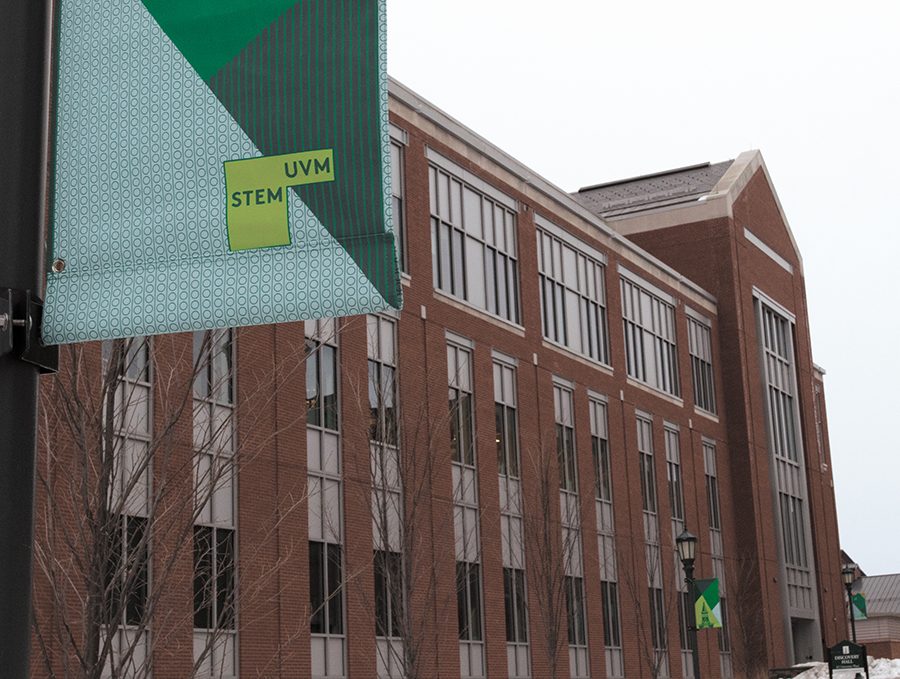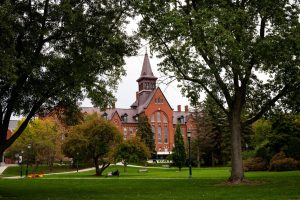Debate team disputes conflict
Promotional banners for STEM are displayed in front of Discovery Hall. A public debate held Feb. 27 in the Davis Center’s Sugar Maple Ballroom focused on whether prioritization toward STEM in higher education is appropriate or not.
March 7, 2019
Following student outcry and protests in response to faculty cuts, UVM’s Lawrence Debate Union held a debate about the importance of STEM and the liberal arts.
The union hosted the public debate Feb. 27 in the Davis Center’s Sugar Maple Ballroom to address the question: “Should we regret the prioritization of STEM in higher education?”
Teams of three worked as the defense and opposition. Audience members were able to vote for the position they supported both before and after the debate. The results split 50-50 at the start, but by the end of the night 76 percent voted against prioritizing STEM and 24 percent were for it.
The debate was not meant to address UVM specifically, but rather to focus on the question of what colleges should be prioritizing nationwide, said debate union member Abigail Robbins, a sophomore.
Robbins emphasized that in debates, each side takes the opposing position to the other, with the hope being that a realistic middle ground emerges.
“STEM and liberal arts have distinct but compatible natures,” she said.
In the opposition’s opening statement, senior Miranda Zigler said higher education’s purpose is to give students a well-rounded education. Delivering that means that neither liberal arts or STEM should be prioritized over the other.
Robbins said that the increasing need for STEM-related skills gives those career paths increased job and pay security, necessitating an emphasis on STEM education.
First-year Clara Martorano spoke against prioritization.
“The purpose of education is to make a well-rounded person who is going to be ready for society in all aspects,” she said.
Sophomore Natalya Hebert disagreed, saying that climate change poses an immediate risk to society, requiring emphasis on STEM education.
In her closing argument, sophomore CeCe Szkutak said that STEM can’t fix climate change alone because it needs liberal arts disciplines to persuade people of the importance of fighting climate change.
George Fitzpatrick, a theater department lecturer, attended the debate and said during the Q&A it’s important to remember that colleges are selling themselves to prospective students and want to appear competitive.
At UVM, enrollment in the humanities has decreased 44 percent since 2009. Two lecturer positions have been cut and 10 lecturers’ hours have decreased as CAS faces a $1.3 million deficit, according to a Feb. 19 Cynic article.
In response to these cuts, the faculty union, United Academics, held a Feb. 14 rally and students have engaged in various social media campaigns and later organized into the Coalition for Student and Faculty Rights, according to a March 1 Cynic article.
Speaking for the defense, sophomore Isabel Birney said she would like to have a job that makes her happy, but she also wants job security.
“There is a ticking time bomb on our society,” she said. “Prioritizing STEM now doesn’t mean we can’t prioritize liberal arts at a later date.”








